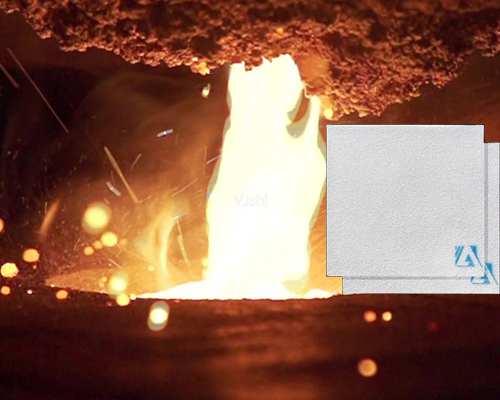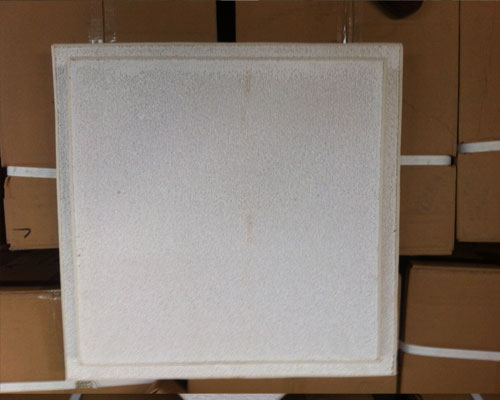Alumina ceramic foam filter for casting is used for the filtration of cast aluminum ingots, aluminum square ingots, aluminum rods and aluminum wires. It has excellent stability and thermal shock resistance. The complexity of the filter will not be destroyed during the casting process.
When the molten metal passes through the alumina ceramic foam filter, the filter can more effectively extract impurities and gas and liquid components.
The gas hydrogen content and solid inclusions in the aluminum alloy melt are the main factors affecting the quality of aluminum alloy products. The presence of inclusions and gaseous hydrogen destroys the continuity of the metal. Due to the different elastic modulus and expansion coefficients between the inclusion and the metal matrix, the sharp corners of the inclusion phase are prone to stress concentration and become the source of material cracking and corrosion. Various defects may appear during the processing and deformation of aluminum alloy materials.

In order to improve the purity of the aluminum alloy melt, in addition to the smelting of the aluminum melt and the purification of the static process, the aluminum alloy purification system outside the furnace is more important.
Alumina ceramic foam filters for casting are increasingly used in the aluminum industry. These are special filters made of materials such as silicon carbide and alumina, which provide structural stability and ensure thermal shock resistance. Ceramic foam filtering can remove oxides on the surface of aluminum, thereby improving casting quality. Today, more and more aluminum sheet and aluminum foil manufacturers are using AdTech alumina ceramic foam filters.
Generally, aluminum casting using alumina ceramic foam filters are placed in the CFF filter box. Because they have excellent resistance to the erosion and corrosion of molten aluminum, they can effectively remove inclusions, reduce trapped gas and provide laminar flow. Cleaner metals can produce higher-quality castings, fewer waste products and fewer inclusions, all of which help increase profits.

